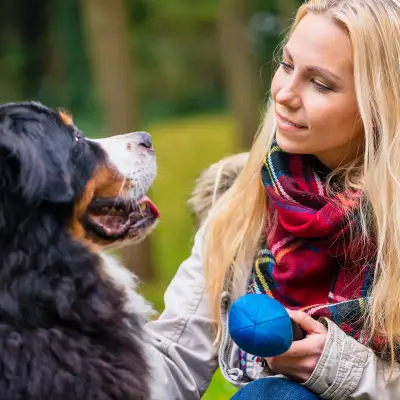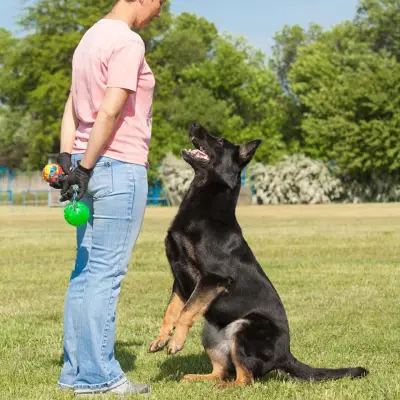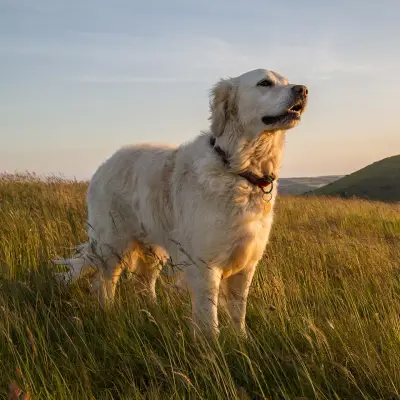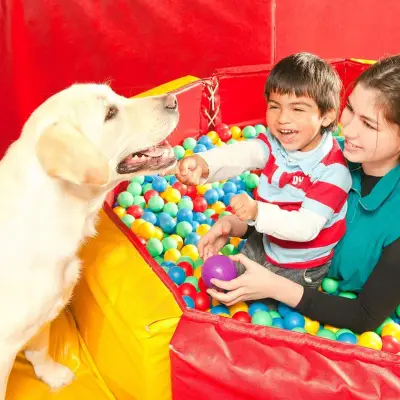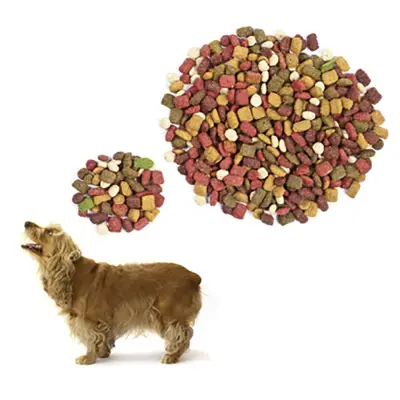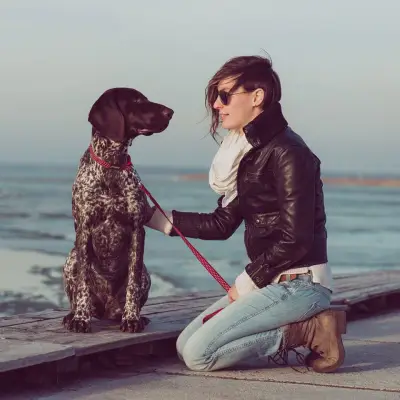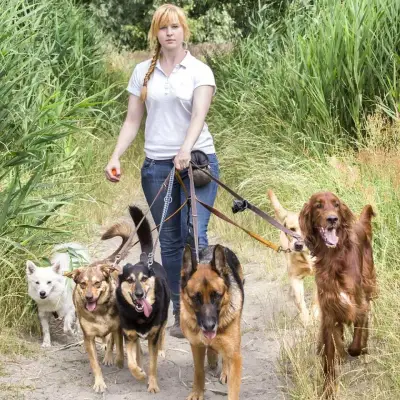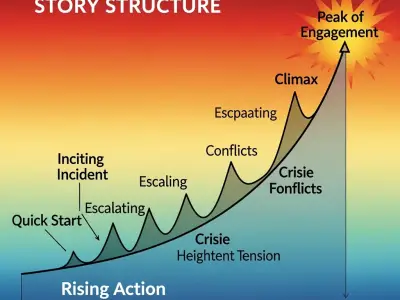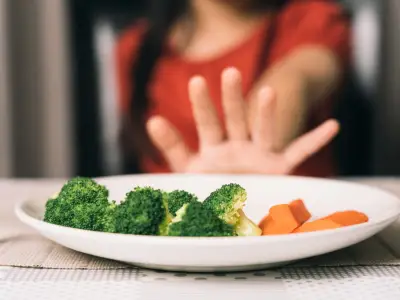Welcoming a puppy into your life is an adventure filled with joy and learning. As your furry friend grows, their dietary needs evolve, too. Understanding when and how to transition from puppy to adult dog food is essential for their health and wellbeing. In this blog, we'll explore the key points about transitioning your puppy to adult dog food, ensuring you feel confident and informed.
Jump to:
- What Age Is a Dog an Adult?
- Can a Puppy Eat Adult Dog Food?
- When Can Puppies Eat Adult Dog Food?
- Switching from Puppy Food to Adult Food Based on Age and Breed Size
- What is the Difference Between Puppy and Adult Dog Food?
- When Should I Switch My Puppy from Starter to Food?
- What Age Do You Reduce Puppy Meals?
- Can Puppies Eat a Raw Diet?
- Why Isn’t My Puppy Eating?
- Can Adult Dogs Eat Puppy Food?
What Age Is a Dog an Adult?
A dog is generally considered an adult when it reaches physical maturity, which varies by breed size. Small breeds reach adulthood by 9 to 12 months, while medium breeds are typically fully grown around 12 to 15 months. Large and giant breeds, on the other hand, may take longer, usually reaching maturity at about 18 to 24 months. While these are general guidelines, each dog is unique, and factors like breed, health, and individual growth patterns can influence the timing of when a dog is fully matured.

Can a Puppy Eat Adult Dog Food?
Puppies should ideally only eat adult dog food once they reach the appropriate age for their breed size, as their nutritional needs differ significantly from adult dogs. Puppies require a diet rich in protein, calories, and specific nutrients to support their rapid growth and development. On the other hand, adult dog food is formulated to maintain health and weight in fully grown dogs and might not provide the necessary nutrients for a growing puppy.
Introducing adult food too early can lead to nutritional imbalances and affect a puppy's overall health and growth. Therefore, it's best to feed puppies with food specifically designed for their developmental stage until they can safely transition to adult dog food.
When Can Puppies Eat Adult Dog Food?
Puppies can start eating adult dog food when grown enough to be almost as big as when fully grown. This usually happens around their first birthday but can vary depending on the breed. Small dogs grow quickly, so they might be ready for adult food when they're about 9 to 12 months old. Larger dogs, however, grow more slowly and often need to wait until they are about 18 to 24 months old.
It's not just about their age but also how much they have grown. Checking their growth and occasionally consulting with a vet can help you decide the best time to switch to adult food. This ensures your puppy gets the right nutrients at the right time, supporting their growth and health as they become adult dogs.
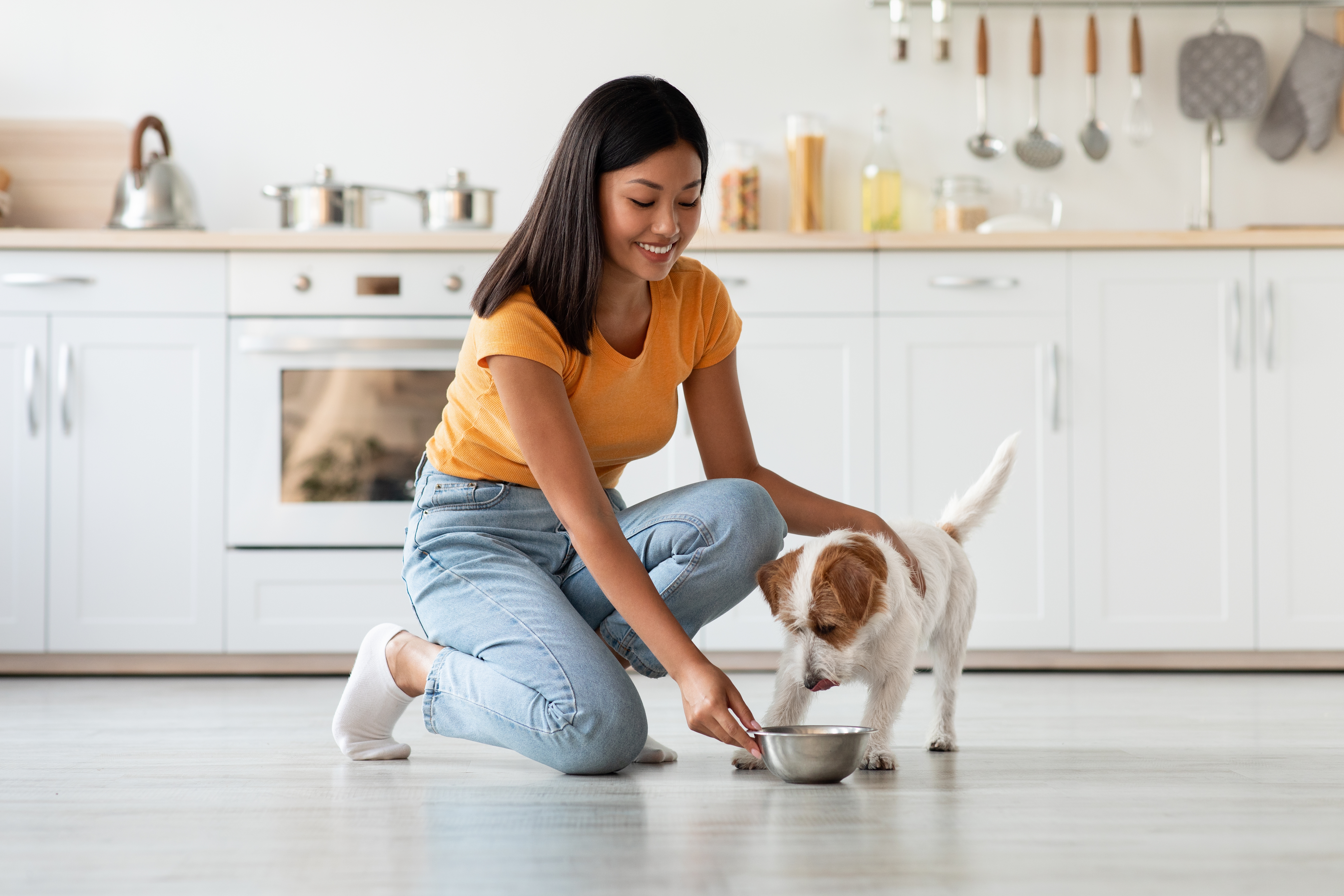
Switching from Puppy Food to Adult Food Based on Age and Breed Size
| Breed Size | Typical Adult Weight Range | Recommended Age to Switch to Adult Food |
| Small Breeds | Up to 10 kg (22 lbs) | 9-12 months |
| Medium Breeds | 10-25 kg (22-55 lbs) | 12-15 months |
| Large Breeds | 25-40 kg (55-88 lbs) | 15-18 months |
| Giant Breeds | Over 40 kg (88 lbs) | 18-24 months |
Notes:
- Small Breeds: Includes breeds like Chihuahuas, Pomeranians, and Dachshunds. These dogs typically reach their adult size faster and can transition to adult food around 9-12 months.
- Medium Breeds: Breeds such as Beagles, Cocker Spaniels, and Bulldogs fall into this category. They generally reach maturity between 12-15 months.
- Large Breeds: Includes Labradors, Golden Retrievers, and German Shepherds. They have a slower growth rate and should switch to adult food around 15-18 months.
- Giant Breeds: Breeds like Great Danes and Mastiffs that take longer to reach their full size should transition to adult food later, typically between 18-24 months.
Key Considerations:
- Individual Variation: Remember, these are general guidelines. Individual dogs may vary based on their specific growth patterns and health conditions.
- Consult a Vet: It's always a good idea to consult with a veterinarian to determine the best time to switch, especially if your dog has specific health needs or dietary requirements.
- Transition Gradually: When switching to adult food, do it gradually over 7-10 days to avoid digestive upset.
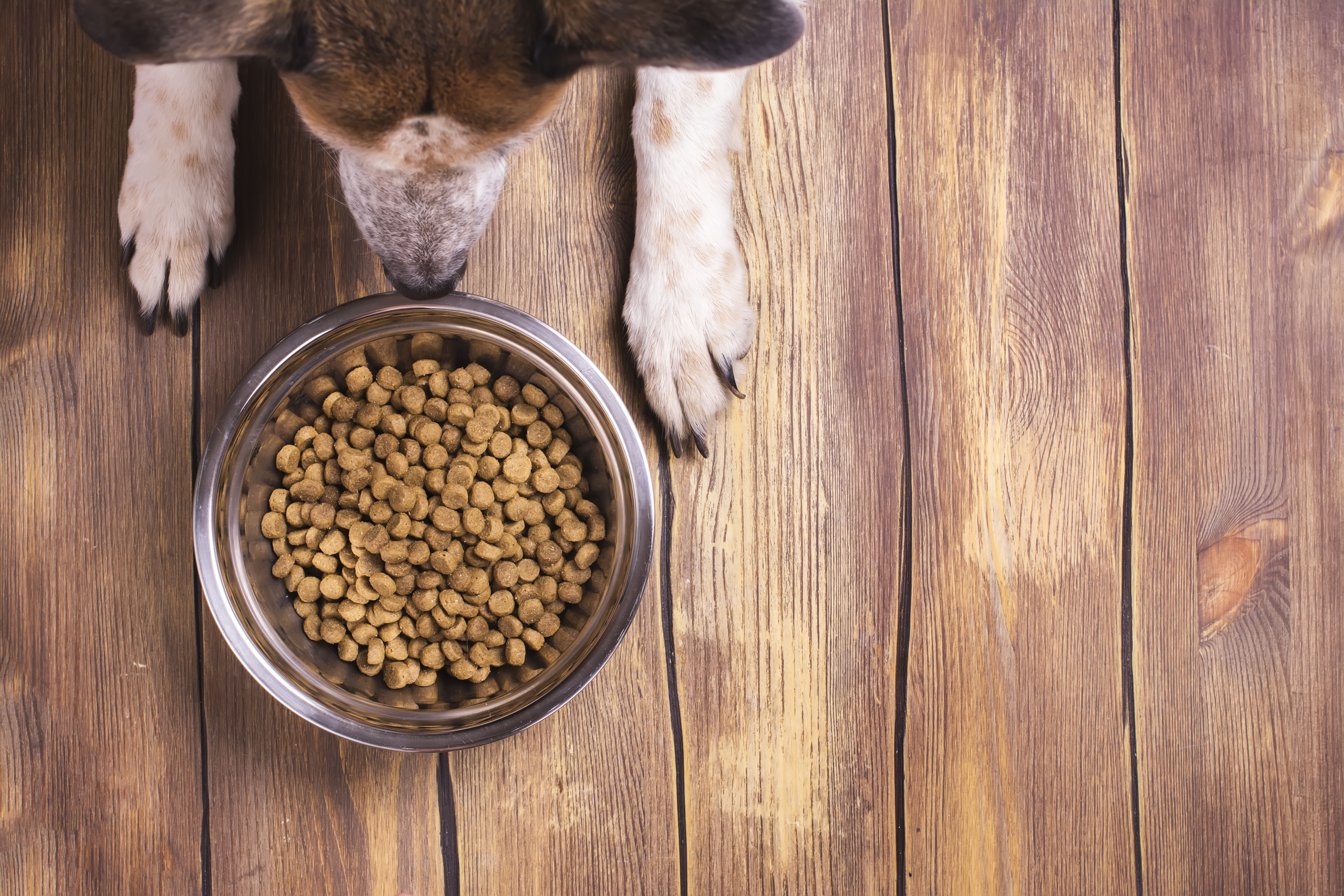
Puppy Feeding Frequently Asked Questions
What is the Difference Between Puppy and Adult Dog Food?
Understanding the difference between puppy and adult dog food is key. Puppy food supports rapid growth and development with higher calories, protein content and essential nutrients. Adult dog food, on the other hand, is formulated to maintain a healthy weight and support ongoing health in a fully grown dog.
When Should I Switch My Puppy from Starter to Food?
The switch from starter to regular puppy food usually happens around three to four months of age. This change is a step towards preparing them for adult dog food later.
What Age Do You Reduce Puppy Meals?
As puppies grow, their feeding schedule also changes. Around six months of age, you can typically reduce feeding from three times a day to twice daily. This helps prepare them for the adult feeding schedule.
Can Puppies Eat a Raw Diet?
A raw diet is not dangerous for puppies but requires careful planning to ensure it meets their specific nutritional needs for growth and development. A balanced, raw diet typically includes raw meat, bones, fruits, and vegetables. However, consulting with a veterinarian or a canine nutritionist is essential to ensure the diet is appropriately balanced in nutrients like protein, fat, and essential vitamins.
Additionally, risks include potential bacterial contamination and bone safety. Safe handling and storing raw food are important, and any dietary changes should be introduced gradually. Regular vet check-ups are recommended to monitor the puppy's health and development on a raw diet.
Why Isn’t My Puppy Eating?
If your puppy isn't eating, it could be due to several reasons. Environmental changes, stress, or dietary shifts can impact their appetite. Teething discomfort may also cause a decrease in eating. More serious concerns like health issues, reactions to vaccinations or medications, or overfeeding could be culprits.
If your puppy's appetite doesn't improve, or if they show other symptoms like lethargy, vomiting, or diarrhoea, consult a veterinarian. Puppies have high nutritional needs for their growth and development, so prolonged loss of appetite should be addressed quickly.
Can Adult Dogs Eat Puppy Food?
While adult dogs can eat puppy food, it's not ideal due to the higher calorie content, which can lead to weight gain and other health issues in a mature dog.
Recommended for you!
Best SellersExplore Canine Nutrition with Centre of Excellence
If you're passionate about providing the best for your dog, consider expanding your knowledge with our Canine Nutrition Diploma Course. At Centre of Excellence, we pride ourselves on delivering thorough, engaging courses that delve deep into the subjects that matter to you.
What You'll Gain:
- In-Depth Understanding of Canine Nutrition: Our course comprehensively explores canine dietary needs. You'll learn about the essential nutrients required for different stages of a dog's life, dietary considerations for various breeds, and how to address special dietary needs.
- Expert Guidance and Practical Strategies: Benefit from expert insights into canine nutrition and health. The course offers practical tips for creating balanced diets, understanding commercial dog food labels, and making informed choices about supplements and homemade diets.
- Skills for Personal and Professional Advancement: Whether you're a dog owner wanting the best for your pet or aspiring to work in canine nutrition, our course equips you with valuable knowledge. Improve your ability to make informed decisions about your dog's diet, enhancing their wellbeing and your bond.
- Empowerment Through Learning: Empower yourself with the expertise to confidently navigate the world of canine nutrition. This knowledge benefits your pet and allows you to advise others, contributing to the health and happiness of more dogs.
Special Offer:
We're excited to offer our Canine Nutrition Diploma Course at a special price of just £29 – saving you over £100! This opportunity provides remarkable value, offering accessibility for everyone passionate about canine wellbeing.
